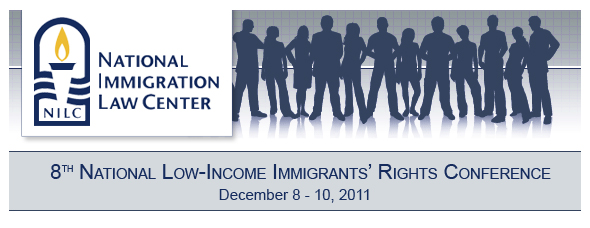(English → Español) View originalTranslators:
From Immigration Impactv4svxuyearsct2kuv6r6gl9h3ewuyusy
By Seth Hoyupylgzdwagxixr8u6cm8klhg5iqga7q8
There has been much confusion in the wake of DHS’s recent announcement about how immigration agencies can use prosecutorial discretion in determining low and high priority immigration cases. What is considered a low priority case? Who is eligible for employment authorization? How should those with pending removal cases proceed? oxb6w8msp5iw91u5gieuyl14u9y6qmrsIn an effort to protect immigrants who might be taken advantage of by immigration consultants (or notarios) and to clarify the information currently available, the American Immigration Lawyers Association (AILA) recently issued a consumer advisory outlining what DHS’s announcement is and is not.ay6vjvulbxl7di04b0c8opovtbngy3dj
AILA’s advisory starts with a series of basic warnings to protect folks against misinformation and immigration scamsph0uog7xcf34o4e8rih6ywwavmq295jn
- Do NOT believe anyone who tells you they can sign you up for a work permit (Employment Authorization Document or “EAD”) or get you legal status based on the Secretary Napolitano’s August 18, 2011 announcement!2gbwjuilas2odgtqx88tg6a5ajtrl9bs
- There is NO “safe” way to turn yourself in to immigration and there is NO guarantee that your case will be considered “low priority.” ANY person who comes into contact with immigration authorities may be arrested, detained or even removed.i3csi72pyzx2jagtwl2vf8qf83d3b3c6
- Only a QUALIFIED IMMIGRATION LAWYER can evaluate your case and tell you about your rights. Do NOT seek legal advice from a notario or immigration consultant.94adi10lkifarjz7ih7d1ibsl60h8h8f
The advisory then describes what DHS’s announcement IS NOT. It is NOT a blanket legalization program or a policy designed to give large groups of people temporary relief. No one will get a permanent legal status, nor is there a program to sign up for. Contrary to recent attention-grabbing headlines, DHS’s announcement is about targeting its limited enforcement resources on high priority immigration cases by removing low priority cases from the system. ajkmnxthm44lap6e6pkkokc5cx2i2z3xAs AILA’s advisory clarifies, “the announcement applies ONLY to cases already in the system, ensuring that low priority cases do not continue to clog up an already overburdened immigration court system.”90ebxj1om04jw1e8d2j9ppdy1rj494o6
So what IS DHS’s new policy on prosecutorial discretion and what does it do? According to the advisory, DHS expanded prosecutorial discretion guidelines—taken from a June memo by ICE Director John Morton—agency wide and the created a high-level working group to:hkq03ll6sycutqcotgdly7os6cr7z2eu
- Review all cases already pending before the immigration courts. Those that are considered “low priority” may be administratively closed. Those that are considered a “high priority” will be prosecuted more aggressively. There are no rules or guarantees that a particular type of case will be considered a “low” or “high” priority. Recent guidelines are helpful, but no one can tell you if your case is a low priority-only immigration authorities will make that decision.plslbqdig9dnkx315z4zrg2h5q35hrt8
- Create department-wide guidance to help USCIS, CBP, and ICE agents and officers make better, more consistent decisions about who to place in removal proceedings. In the future, immigration authorities will review the cases people before they are placed in removal proceedings. Those that are “low priority” may not be referred to the immigration court.r5907uwmyb5zzcakynbuhxvl180ftmc8
- Issue guidance on providing discretion in compelling cases for persons who already have a final order of removal.dzxfizof95y47wb02464pd9lt9ood3hl
Folks who have been caught up in our broken immigration system for years are understandably hungry for more information about how DHS’s recent announcement might affect them and what they can do to be proactive. Unfortunately, the best advice for them right now is to “wait and see” as the government makes more information available.a8wxxo19uw2ss49jygckctx5a7ilr524
As of now, DHS has not provided any further details on how the review process might work or when it will begin. In the meantime, AILA is advising interested parties to “consult an immigration lawyer or accredited representative” (www.ailalawyer.com), and NOT to rely on the advice of immigration consultants (notarios) or rumors from friends, neighbors or coworkers. a61c1ht7vopjnr882to9lg4rwohil6y9Most importantly, immigration attorneys warn folks not to fall victim to immigration scams by staying up-to-date on notario fraud.zyw3pliro0whm5vq4dpftfr8nf3tgyoi
(original) View Español translation
From Immigration Impact
By Seth Hoy
There has been much confusion in the wake of DHS’s recent announcement about how immigration agencies can use prosecutorial discretion in determining low and high priority immigration cases. What is considered a low priority case? Who is eligible for employment authorization? How should those with pending removal cases proceed? In an effort to protect immigrants who might be taken advantage of by immigration consultants (or notarios) and to clarify the information currently available, the American Immigration Lawyers Association (AILA) recently issued a consumer advisory outlining what DHS’s announcement is and is not.
AILA’s advisory starts with a series of basic warnings to protect folks against misinformation and immigration scams
- Do NOT believe anyone who tells you they can sign you up for a work permit (Employment Authorization Document or “EAD”) or get you legal status based on the Secretary Napolitano’s August 18, 2011 announcement!
- There is NO “safe” way to turn yourself in to immigration and there is NO guarantee that your case will be considered “low priority.” ANY person who comes into contact with immigration authorities may be arrested, detained or even removed.
- Only a QUALIFIED IMMIGRATION LAWYER can evaluate your case and tell you about your rights. Do NOT seek legal advice from a notario or immigration consultant.
The advisory then describes what DHS’s announcement IS NOT. It is NOT a blanket legalization program or a policy designed to give large groups of people temporary relief. No one will get a permanent legal status, nor is there a program to sign up for. Contrary to recent attention-grabbing headlines, DHS’s announcement is about targeting its limited enforcement resources on high priority immigration cases by removing low priority cases from the system. As AILA’s advisory clarifies, “the announcement applies ONLY to cases already in the system, ensuring that low priority cases do not continue to clog up an already overburdened immigration court system.”
So what IS DHS’s new policy on prosecutorial discretion and what does it do? According to the advisory, DHS expanded prosecutorial discretion guidelines—taken from a June memo by ICE Director John Morton—agency wide and the created a high-level working group to:
- Review all cases already pending before the immigration courts. Those that are considered “low priority” may be administratively closed. Those that are considered a “high priority” will be prosecuted more aggressively. There are no rules or guarantees that a particular type of case will be considered a “low” or “high” priority. Recent guidelines are helpful, but no one can tell you if your case is a low priority-only immigration authorities will make that decision.
- Create department-wide guidance to help USCIS, CBP, and ICE agents and officers make better, more consistent decisions about who to place in removal proceedings. In the future, immigration authorities will review the cases people before they are placed in removal proceedings. Those that are “low priority” may not be referred to the immigration court.
- Issue guidance on providing discretion in compelling cases for persons who already have a final order of removal.
Folks who have been caught up in our broken immigration system for years are understandably hungry for more information about how DHS’s recent announcement might affect them and what they can do to be proactive. Unfortunately, the best advice for them right now is to “wait and see” as the government makes more information available.
As of now, DHS has not provided any further details on how the review process might work or when it will begin. In the meantime, AILA is advising interested parties to “consult an immigration lawyer or accredited representative” (www.ailalawyer.com), and NOT to rely on the advice of immigration consultants (notarios) or rumors from friends, neighbors or coworkers. Most importantly, immigration attorneys warn folks not to fall victim to immigration scams by staying up-to-date on notario fraud.















